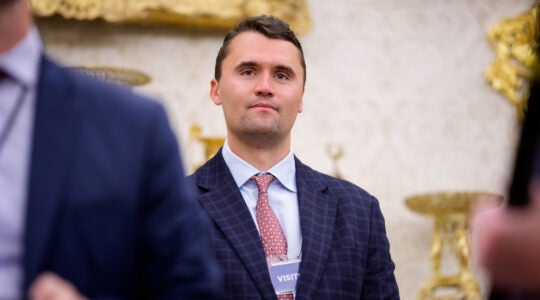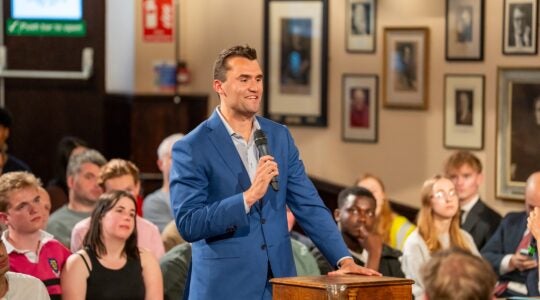The Jewish Funders Network and philanthropist Jay Ruderman Wednesday gathered about 125 Jewish philanthropists and nonprofit officials for a day-long conference dedicated to getting the Jewish world more involved in causes to help the disabled.
Advance: The Ruderman Jewish Special Needs Funding Conference, held at the Random House building in midtown Manhattan, drew a who’s who list of speakers from the general nonprofit world focused on helping those with special needs – as well as a number of officials from Jewish federations, including the CEO of the Jewish Federations of North America, Jerry Silverman.
The conference, which was originally planned for 50 attendees, seemed to strike a cord with funders potentially interested in becoming involved, as organizers ended up with more than double their goal and a sizable wait list.
Fundermentalist’s take: Sitting in at the conference, there seemed a sense that for all of the good work that Jewish philanthropy accomplishes, it has neglected those with special needs. Aside from that this was the first high-profile mainstream Jewish conference on the topic I have seen in covering this beat the past four years, several of those who run both Jewish and non-Jewish efforts to help the disabled expressed their frustrations in trying to get Jewish funders involved.
To be sure, Jewish groups are not alone in putting the needs of the disabled on the relative back-burner. Less than 1 percent of all private philanthropy – about $525 million of the total $307 billion given by private donors in 2009 – went to help the disabled, the CEO of the Disability Funders Network, Kim Hutchinson, said in one session.
But according to Ruderman, studies show that up to 20 percent of members of the Jewish community have some disability or special need, and a huge portion of the Jewish community is underserved.
“There is not enough in the Jewish community to integrate people with special needs,” he said. “By doing so, people with special needs end up excluded from our day school, our synagogues, and they can’t access our JCCs.”
And the problem, he said, is that the Jewish funding world in large part now seems set on attracting those it sees on the fringe of the Jewish community it sees as valuable assets as opposed to helping those in need already in the community. “The Jewish community tends to be focused on upwardly mobile Jews who are assimilating. I don’t think it is intentional, but a large portion of Jews are being neglected,” he said
Special needs, to paraphrase a speech Ruderman gave in the morning, is funding cultural and religious continuity, is funding social justice, is funding access to education and is addressing assimilation, and it is one of the most fundamental issues facing the Jewish world – because they are indeed often excluded. And if the Jewish world cannot take care of its own, “What does that say about the Jewish world?” he asked.
Ruderman has pumped millions of dollars into helping Jews with special needs. And he has also been at the forefront of private philanthropists working with the public Jewish philanthropy that is the Jewish federation system to help create a sea change.
He started with the Combined Jewish Philanthropies in Boston an ambitious program to help integrate special needs children into day schools. And in Israel he is working with the American Jewish Joint Distribution Committee and the Israeli government to help integrate those with special needs into broader society.
And the presence of the JFNA’s chairman, Silverman, as well as a number of sessions dedicated to talking about collaboration seemed to push forward the notion that the Jewish community is now just recognizing a serious problem and that if it is going to address it at this late stage it can’t work in fragments.
Or, as Silverman put it: “The issue is far too big for any one agency or even one network of agencies to salve alone.”
Ruderman and a number of funders and federation officials were set to sit down Wednesday evening to start to talk officially about how they could work together.
While the positive is that the conference – and its attendance – showed that there are positive moves afoot, “this conference should have been organized 10 years ago,” said William Daroff, the director of the Washington office, which helps lobby for millions of federal dollars to help disadvantaged communities said.
JTA has documented Jewish history in real-time for over a century. Keep our journalism strong by joining us in supporting independent, award-winning reporting.





